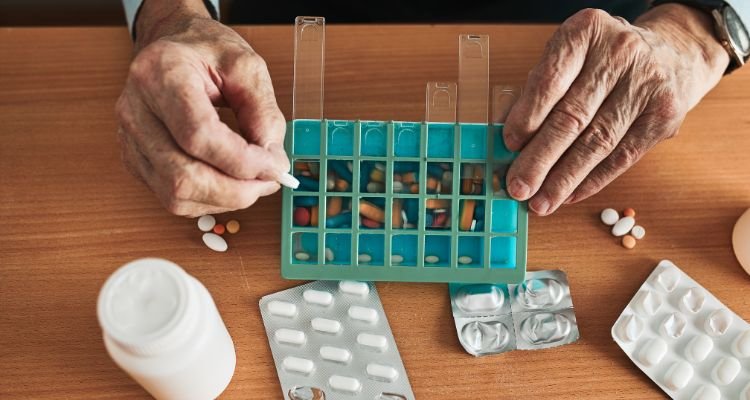Diabetes is a chronic disease that has reached epidemic proportions worldwide, affecting millions of individuals and straining healthcare systems. The role of pharmacies and pharmacists is crucial in managing and mitigating the impact of diabetes. This article explores how the pharmacy profession contributes to Pre diabetes through patient education, medication management, lifestyle guidance, and innovative practices.
Understanding Diabetes

Diabetes is characterized by high blood glucose levels resulting from either insufficient insulin production (Type 1 diabetes) or the body’s incapacity to apply insulin effectively (Type 2 diabetes). Gestational diabetes occurs during pregnancy and can pose risks to both the mother and child. Uncontrolled diabetes can lead to serious complications, including heart disease, kidney failure, vision loss, and amputations.
The Role of Pharmacists in Diabetes Care
Pharmacists are often the most accessible healthcare professionals for patients, making them essential in diabetes care. They provide a range of services that contribute significantly to managing and preventing diabetes and its complications.
1. Patient Guidance and Support:

Pharmacists play a pivotal role in educating patients about diabetes management. They offer guidance on the importance of maintaining blood glucose levels within the target range and the need for regular monitoring.
- Medication Adherence: Pharmacists educate patients on the proper use of medications, emphasizing adherence to prescribed therapies to control blood sugar levels effectively. They also explain potential side effects and how to manage them.
- Self-Monitoring: Educating patients on the correct use of blood glucose monitors and interpreting the results empowers patients to take control of their condition.
- Lifestyle Modifications: Pharmacists provide advice on lifestyle changes, including diet, physical activity, and weight management, which are crucial for managing diabetes.
2. Medication Management:

Effective diabetes management often requires a combination of medications. Pharmacists are experts in pharmacotherapy and can optimize medication regimens to achieve the best outcomes for patients.
- Medication Reviews: Regular medication reviews conducted by pharmacists ensure that patients are on the most effective and safe treatment plans. They can identify and address issues such as drug interactions, side effects, and non-adherence.
- Adjusting Therapy: Pharmacists work closely with physicians to adjust medication doses based on patients’ blood glucose readings and overall health status. This collaborative approach ensures personalized and responsive diabetes care.
- Innovative Treatments: Pharmacists stay updated on the latest advancements in diabetes treatment, including new drug therapies and insulin delivery systems, and can incorporate these innovations into patient care.
3. Preventive Care and Early Detection:
Pharmacists play a key role in the early detection and prevention of diabetes, particularly Type 2 diabetes, which can often be prevented or delayed through lifestyle changes.
- Screening Programs: Community pharmacies can offer diabetes screening programs, identifying individuals at risk and referring them for further evaluation and diagnosis.
- Risk Factor Education: Pharmacists educate patients about risk factors for diabetes, such as obesity, sedentary lifestyle, and family history, encouraging them to adopt preventive measures.
- Vaccinations: Pharmacists can also administer vaccinations, such as the influenza and pneumococcal vaccines, which are important for individuals with diabetes due to their increased susceptibility to infections.
4. Chronic Disease Management:
Managing diabetes often involves addressing other chronic conditions that can exacerbate the disease or result from it, such as hypertension, hyperlipidemia, and cardiovascular disease.
- Integrated Care: Pharmacists provide integrated care by managing multiple conditions concurrently, ensuring that treatment plans for diabetes and comorbidities are compatible and effective.
- Monitoring and Follow-Up: Regular follow-up appointments with pharmacists help in monitoring patients’ overall health, managing complications, and making necessary adjustments to treatment plans.
5. Technological Integration:
The integration of technology in diabetes care has opened new avenues for pharmacists to enhance patient management.
- Digital Health Tools: Pharmacists can recommend and assist patients in using digital health tools, such as mobile apps for blood glucose monitoring, diet tracking, and medication reminders.
- Telehealth Services: Telehealth enables pharmacists to provide remote consultations, offering convenience for patients and ensuring continuous care, especially for those in rural or underserved areas.
- Electronic Health Records (EHR): Access to EHRs allows pharmacists to have a comprehensive view of patients’ medical histories, facilitating better-informed decisions and coordinated care.
6. Research and Innovation:
Pharmacists are actively involved in research aimed at improving diabetes care and outcomes.
- Clinical Trials: Pharmacists participate in clinical trials to evaluate new medications and therapies for diabetes, contributing to the development of innovative treatments.
- Health Services Research: Research conducted by pharmacists also focuses on optimizing the delivery of diabetes care, enhancing medication adherence, and improving patient education and self-management practices.
Case Studies: Pharmacy’s Impact on Diabetes Care
1. Community Pharmacy Diabetes Programs: Several community pharmacies have implemented successful diabetes management programs. These programs typically involve regular consultations with pharmacists, medication reviews, lifestyle counseling, and diabetes education classes. Studies have shown that such programs can significantly improve glycemic control and reduce the risk of complications.
2. Collaborative Practice Models: In collaborative practice models, pharmacists work alongside physicians, nurses, and other healthcare providers to deliver comprehensive diabetes care. These models have been shown to improve patient outcomes, including better blood glucose control, reduced hospitalizations, and lower healthcare costs.
3. Innovative Pharmacy Services: Some pharmacies have embraced innovative services such as medication synchronization, where pharmacists align all of a patient’s prescriptions to be refilled at the identical day every month.. This approach has been shown to improve medication adherence and overall diabetes management.
Challenges and Future Directions
While pharmacists play a crucial role in diabetes care, several challenges need to be addressed to maximize their impact.
1. Reimbursement and Recognition: Pharmacists often face challenges related to reimbursement for the clinical services they provide. Advocacy for policy changes that recognize and compensate pharmacists for their role in chronic disease management is essential.
2. Education and Training: Continuous education and training are necessary for pharmacists to stay updated on the latest advancements in diabetes care. Integrating advanced diabetes management training into pharmacy education can enhance pharmacists’ expertise.
3. Integration into Healthcare Teams: Greater integration of pharmacists into healthcare teams is needed to ensure comprehensive and coordinated care. This includes fostering collaborative practice agreements and improving communication between pharmacists and other healthcare providers.
4. Access to Technology: Expanding access to digital health tools and telehealth services can enhance the reach and effectiveness of pharmacists in diabetes care. Investment in technology infrastructure and training is crucial.
Conclusion
Pharmacists are indispensable in the fight against diabetes. Their expertise in medication management, patient education, preventive care, and chronic disease management positions them uniquely to improve outcomes for individuals with diabetes. By embracing innovative practices, leveraging technology, and advocating for policy changes, pharmacists can further enhance their contribution to diabetes care. As the healthcare landscape evolves, the role of pharmacists in managing diabetes will continue to grow, ultimately helping to reduce the burden of this chronic disease and improve the quality of life for millions of patients.








